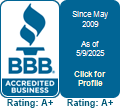Many people only schedule air conditioning repair when their system totally fails. However, the truth is your air conditioner will often give warning signs before a total breakdown that results in new AC installation. Noticing early problems and calling the experts at Select Comfort Systems to address issues early can help you avoid the hassle and expense of a full AC system failure. More important, it can prevent the uncomfortable feeling of having your AC break down when it’s scorching hot outside.
When you call us, our team of skilled HVAC technicians will identify the problem, fix the problem and get your AC back on track. We have extensive expertise and provide high-quality, cost-effective AC service for our community.
Why hold off until your cooling system quits? Skip all that hassle by calling 801-305-4777 today to schedule AC repair in West Valley City, UT, from Select Comfort Systems.

How to Know if You Need AC Repair
Wondering if your air conditioner is having issues? From a stinky smell to a lack of cool air coming from the vents, there are many clues that your cooling system has a problem and needs evaluation or repair.
Here are some red flags that trouble may be on the way and it’s time to call an HVAC technician from Select Comfort Systems:

AC blows warm air instead of cold
If hot air is flowing out of your AC unit instead of cool air, or if the air isn’t as cool as normal, it’s a wise decision to call us for professional cooling service.
Air conditioner keeps turning on and off
If your AC system starts and stops instead of running consistently, it could be a warning of potential issues and should be looked at by one of our certified HVAC technicians.


Home energy bills spike for seemingly no reason
A sharp increase in your energy bills can be a signal your AC unit is becoming less efficient, which means it uses more energy to cool your home and needs AC maintenance or repair.
Odd odors are coming from your air conditioning
Air conditioners should not stink. Unusual odors coming from your air conditioner should be evaluated by a professional, as they can be a sign of problems like mold, mildew or even electrical issues.


Loud sounds coming from your AC
If you hear odd noises when your AC system is running — clanking, rattling or squealing, to name just a few — it’s important to call for professional HVAC service to get to the bottom of the issue.
Request Pro Air Conditioner Repair Now
When you require air conditioning service quickly, contact the HVAC repair experts at Select Comfort Systems at 801-305-4777. We’ll quickly identify the problem when your equipment won’t work or provide enough chilled air.

